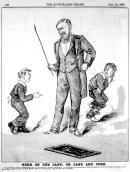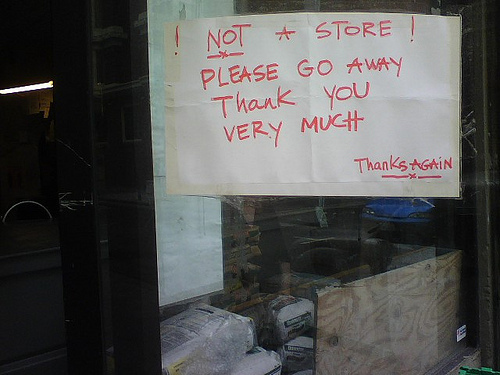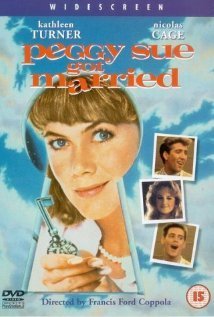Madeleine E. Robins's Blog: Madeleine Robins: Journal, page 13
October 6, 2014
Words, words, words
But what about when the word is right but no one will believe it? My favorite example of this is the word “dude.” If you don’t immediately think of Jeff Bridges in The Big Lebowski, you doubtless hear Keanu Reeves saying “duuuude.” And yet.
See the chap on the left? That’s Evander Wall, a New York City social lion in 1880s, who was known in the papers as The King of the Dudes. The word “dude” dates at least from the mid 1800s (and may be related further back to the medieval word “dudde,” for clothes, as in duds). While “dude” was often used to indicate a city-guy who is out of his element anywhere except in the city (thus “dude ranch”), it was also used (per Wikipedia) as a job description.
So: Dude is a perfectly legal mid-1800s word. But if I set a story in a Victorian-era steampunk setting and have a character refer to another as a “dude,” most readers will be snatched up by the nape of the neck and pulled right out of my narrative because it carries a weight and an image that doesn’t fit.
A similar case: I was reading a book set in 1815 in which the hero uses the word “libido.” Perfectly fine Latin word that the speaker, a university-educated gentleman, would have known. Except that “libido”, as a word, has Freud’s fingerprints all over it. I was startled out of the story and had to take some time to talk myself back into it.
English is a fabulous language, but it’s not a set-in-stone one. It shifts. Jane Austen gives her hero and heroine a little run-in in Northanger Abbey about the word “nice.”
“I am sure,” cried Catherine, “I did not mean to say anything wrong; but it is a nice book, and why should not I call it so?”
“Very true,” said Henry, “and this is a very nice day, and we are taking a very nice walk, and you are two very nice young ladies. Oh! It is a very nice word indeed! It does for everything. Originally perhaps it was applied only to express neatness, propriety, delicacy, or refinement—people were nice in their dress, in their sentiments, or their choice. But now every commendation on every subject is comprised in that one word.”
I am happy to say that Henry’s sister more or less mashes him flat for teasing poor Catherine about her word use. But it does point out that a word that used to mean one thing might later come to mean something else, and if you’re writing in a past setting, you want to know when that change happened. “Relationship,” in the sense of “Louise and Jim are in a relationship”, is relatively new in the language–Miss Austen, in fact, would not likely have recognized its use that way. The word was meant to express a familial link, or the way in which two things or people behave toward each other.
Words aren’t just the tools that lay out a narrative in a nice linear (or non-linear) fashion. They can be brilliant world-building tools. Language can set up the formality of a society, the caste relationships, the manners and beliefs of a people, as well as the beliefs or personalities of characters. If you’re writing in a period, or near-period setting, spending a little time on your words can set the scene–and save your readers from the disorientation that comes with the insertion of Keanu Reeves into the narrative.
*compact here means 18″ x 11″ x 3.6″ and 15 pounds. You could kill someone with the thing.
**honest to God. I saw this once. My head has not returned from the exploding place.
May 13, 2014
Planned Obsolescence
A billionyears ago (actually 24) I worked as aghost-writerfor a psychiatrist whose specialties were 1) working with women with serious psychiatric disorders (schizophrenia, bipolar depression, etc.) who were the mothers of infants, and 2) infant depression (you will be unsurprised to know that they are frequently linked).About the time my older daughter was six months old, I quit–having my nose that deepinto psychiatric dysfunction in infancy meant that every time my daughter hiccuped I was a...
May 7, 2014
Blog-Hoppery
May 2, 2014
Education =/= Panic
 This is apparently true: a Long Islandelementary schoolcancelled the annual-year end kindergarten show because it would distract the kindergarteners from preparing for college.
This is apparently true: a Long Islandelementary schoolcancelled the annual-year end kindergarten show because it would distract the kindergarteners from preparing for college.
I’m not as surprised by this as I might have been twenty years ago or so. At that time, when I was living in New York City and my husband and I were looking for a preschool for our older daughter, we were told–with a straight face–by the head of a Montessori school that my kid couldn’t hope to get into Harvard without t...
April 28, 2014
Bad Attention
When you’re a kid, and later, if and when you’re a parent, you sometimes hear the term “bad attention.” As in, “We know you like attention, Lochinvar, but setting Mary Lou’s braids on fire will only get youbad attention.”
Bad attention: the sort of attention that goes down in your permanent record, that possibly keeps you out of a job or the college of your choice, the sort of attention that maybe comes with media attention and perhaps a lengthy jail sentence.
There are those, I know, who belie...
October 17, 2011
The World is Full of Small Weird Miracles
 There was a day, a few years ago, when I was walking Emily, the household dog, across the overpass that spans the highway near our house. We were on the far side, starting down the ramp to the sidewalk, when I observed a middle-aged woman on the street below us. She was walking her dogs, two affable looking German shepherds. When one of them stopped to do what a dog stops to do, the woman picked up the leavings in a plastic bag, as one does. And then she did something curious: she went...
There was a day, a few years ago, when I was walking Emily, the household dog, across the overpass that spans the highway near our house. We were on the far side, starting down the ramp to the sidewalk, when I observed a middle-aged woman on the street below us. She was walking her dogs, two affable looking German shepherds. When one of them stopped to do what a dog stops to do, the woman picked up the leavings in a plastic bag, as one does. And then she did something curious: she went...
October 3, 2011
Why Can’t You Just Watch the Movie?

There are two kinds of people in the world: the people who divide the world into two kinds of people, and the people who don’t. (**Rimshot**) Among the many binary categorizations of humans, one that I run into a lot is: people who want to figure out why a story works, and people who don’t. And these two kinds of people can really get up each other’s nose. From my perspective, there I am, having a swell discussion about why the film we just saw worked (or didn’t), when someone says “Why do yo...
Why Can't You Just Watch the Movie?

There are two kinds of people in the world: the people who divide the world into two kinds of people, and the people who don't. (**Rimshot**) Among the many binary categorizations of humans, one that I run into a lot is: people who want to figure out why a story works, and people who don't. And these two kinds of people can really get up each other's nose. From my perspective, there I am, having a swell discussion about why the film we just saw worked (or didn't), when someone says "Why...
September 26, 2011
Balance, Juggling, Life
[image error]This year's biggest accomplishment may be that I found a job. A 9-5 gig. After 14 years away from the "salaried workforce" (it isn't like I haven't been working for all those years, just that I was freelancing). There were persuasive economic and personal reasons to do this (and to the person in my social circle who seemed to believe that by taking a job I was somehow either betraying My Art or giving in to The Man–chill. Really). And in fact I can confidently say, after four whole days o...
September 19, 2011
It Must Follow, as the Night the Day
 I had a perfectly splendid time last weekend, making cake for Tachyon Publication's 16th birthday party (it was a Sweet Sixteen cake. With a rhinoceros. In a tiara) and attending the party. And as a nice add-on, I wound up getting to hang out with writers Nancy Kress, Jack Skillingstead, Pat Murphy, and Ellen Klages, all of whom are really smart people, funny, and know lots of stuff. At dinner, apropos of something or other, Nancy said despairingly that in her writing classes she often...
I had a perfectly splendid time last weekend, making cake for Tachyon Publication's 16th birthday party (it was a Sweet Sixteen cake. With a rhinoceros. In a tiara) and attending the party. And as a nice add-on, I wound up getting to hang out with writers Nancy Kress, Jack Skillingstead, Pat Murphy, and Ellen Klages, all of whom are really smart people, funny, and know lots of stuff. At dinner, apropos of something or other, Nancy said despairingly that in her writing classes she often...
Madeleine Robins: Journal
- Madeleine E. Robins's profile
- 124 followers



